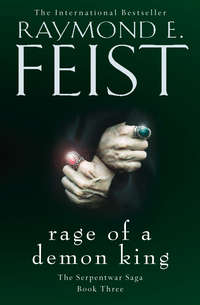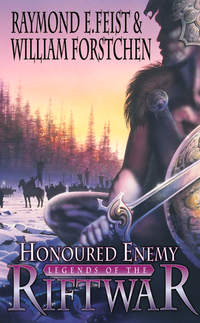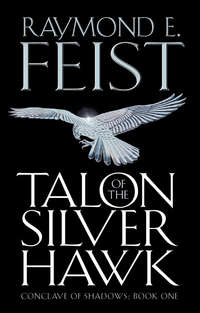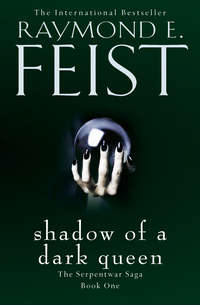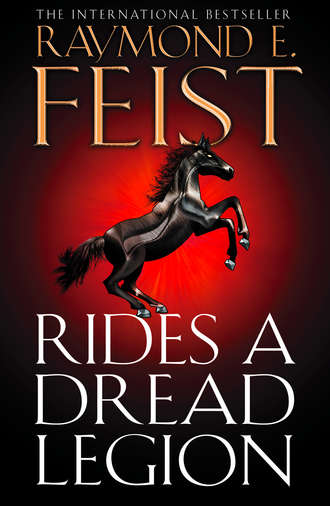
Полная версия
Rides A Dread Legion
‘The Forgotten war against our brethren,’ said the Conjurer, his tone betraying a hint of his anger and disgust. ‘I walked the land listening to gossip in taverns, buying drinks for sailors, speaking with priests and anyone else who might know ancient lore. In one place I found an abbey dedicated to a god, but their wards were two strong for my guise to endure, so I could not enter. But I encountered one of their members on the road and questioned him. He was a monk and his mind was disciplined, but eventually it yielded most of what I learned of their ancient lore, which I now share with you.’
‘Did you kill him?’
‘Of course,’ said the Conjurer. ‘He was merely a human, after all.’
‘No dishonour,’ agreed the Regent Lord. Killing a prisoner would only be dishonourable if they were of the People or of a race considered equal.
‘The Forgotten war against the ones most like us, who abide in a forest grove they call Elvandar.’
At the utterance of that word, the Regent Lord’s eyes shone with emotion. He said the name softly, ‘Elvandar.’ It meant ‘Home of the People,’ but echoed with deeper meaning.
In ages past, the People had served another race, the dreadful Valheru, and had endured slavery and degradation. Then came a great upheaval, a war in which the very fabric of time and space was rent and chaos reigned.
The ancestors of the taredhel, called edhel in their own tongue, were among the mightiest of the servants of the Valheru. They were the spellweavers, the masters of the groves, the keepers of the land, and the librarians of their masters’ power. Many of those who had served with their masters had perished on other worlds, though it was thought that a few had escaped and found refuge. It was the faint hope that there were others like them, out among the stars, that had driven a band of edhel to escape the Valheru through one of the tears in space and time.
To Andcardia they had come, a band of no more than two thousand magic users, hunters, and their families. It was a harsh land, but eventually they made it their own. As centuries passed, they prospered and eventually numbered in millions.
In the past few centuries, they had learned the secrets of translocation magic, tearing the fabric of the universe. No fewer than a dozen magic users had died mastering the art, but they could now stabilize the rifts and explore new worlds; some were inhospitable, others barely able to support life. A few had showed promise and upon them the Clans of the Seven Stars had established colonies. Some of those colonies had grown and were even flourishing.
The People had thrived, and when they encountered other races, they tolerated them as long as they did not oppose their will. If they did not comply, the other races were crushed. All had been glorious, until they found the world of demons.
‘Those in Elvandar serve a Queen…’ continued the Conjurer.
The Regent Lord’s eyes went wide. ‘She dares!’
‘She outlived her king,’ said the Conjurer, quickly. ‘He … may have been of the line.’
The remark hit the Regent Lord like a physical blow. His eyes filled with even more emotion. Among the most ancient, sacred lore of the taredhel was the story of the first king and queen of the People, a couple who had shepherded them safely through the early chaos of the war that had driven the eldar from Home.
Little was known about them, save their deeds and names, which would never be mentioned aloud, lest their spirits be disturbed; but they had been recorded in the annals, and read by every lorekeeper and regent lord. ‘Her name?’
‘They say it is Aglaranna.’
‘The Gift,’ said the Regent Lord.
The Conjurer said, ‘It also means “Bright Moon,” for the largest of the three moons on that world is known by that name, the Gift.’
The Regent Lord shouted, ‘Send for the Loremaster!’ To the Conjurer, he said, ‘Continue, but do not speak of this or the Forgotten until I summon the Meeting.
‘What of these humans who thrive like mice? Have they a ruler?’
‘The humans live in many nations, with many rulers. They war amongst themselves on a regular basis, it seems.’
‘That is good,’ said the Regent Lord calmly. ‘What else?’
‘The dwarves live at peace with their neighbours and are content to do so as long as they remain untroubled. There are also goblins and other such creatures.’
‘Goblins?’
‘Lea Orcha,’ said Laromendis.
Shaking his head in near disbelief, he said, ‘My father raised me to be a pious man, like all of our line, yet I will confess to have been guilty of doubt.’ Lea Orcha, or goblins, were nightmare creatures, conjured as bedtime stories to frighten children into being obedient.
‘They worship dark, ancient gods and spill blood in sacrifice. They consort with trolls and other inferior races.’
‘Goblins … how have they never been exterminated?’
The magic user shrugged, a human gesture he had picked up and which caused the Regent Lord to frown. ‘I don’t know,’ he said softly. ‘There is so much discord and warfare among the human tribes, they hardly seem to have time to deal with goblins.’
The Regent Lord indicated he should continue.
‘This world is known by several names in different tongues, but most commonly it is called Midkemia: a human word.’
‘The land I showed you in my vision is a valley in the mountains called the Grey Towers. This valley was once home to the Forgotten. A human tribe called the Tsurani drove them northward, and they have never returned. To the south live dwarves, but there are natural barriers between the valley and the dwarves’ territory. Some ancient mines still link them, but they have been abandoned and are easily defended. To the north there are paths and trails leading where our evil kin abide.
‘Once established in this valley we may range far and wide. To the east live humans in a federation called the Free Cities. They are poorly organized and ripe for conquest.
‘The danger lies to the west, for there lies the outpost region of perhaps the mightiest human nation—’ He stopped speaking as the Regent Lord raised his hand.
An elderly male dressed in flowing robes entered the room carrying an ancient tome, inside which the history of the People had been recorded since the Time Before. His eyes were dim with age and behind him strode a younger male, his heir, who when not assisting the Loremaster studied, preparing himself for the day he would assume the responsibility of that office.
Both bowed before the Regent Lord, who said, ‘Midkemia. Do we know that world?’
The Loremaster paused for a moment as his assistant leaned over to whisper something. ‘Speak aloud!’ demanded the Regent Lord. ‘No one hides a word from me in my court.’
The younger elf looked abashed, and said, ‘I beg my lord’s forgiveness. I meant no slight. It is just that I have studied some of the earlier passages more recently and recall seeing that name.’
The Loremaster waved away his apprentice’s apology. ‘His name is Tandarae, Regent Lord; he is young, and perhaps a little rash, but his memory is as keen as mine was in my prime.’ The older historian’s face was wan and his eyes watered. ‘Soon this office shall be his, and I recommend him to you.’
The younger historian bowed low before his master and the Regent Lord.
‘Very well,’ he said to Tandarae. ‘What do you know of this world?’
‘In the time before time,’ began the younger historian reciting the ritualized words of the most ancient of myths, ‘before fleeing the Wrath, the People abided.
‘Slaves were we in our Home, ruled by cruel masters, the Lords of Power, the Dragonriders.
‘Then came the Wrath and the skies were torn, and the Dragonriders rose to contest a great war. Many of the People perished and many were lost among the stars, left behind when our masters returned to the Home to struggle with the Wrath. As the war continued,’ said the young Loremaster closing his eyes as if he read from the ancient text in his mind, ‘many lesser beings, Dakan Shoketa, Dena Orcha, and Dostan Shuli, came to Home across a golden bridge, feeling the Wrath as it descended on the world.’
He stopped and said, ‘Midkemia is a word used by the Dakan Soketa, my lord, the ancient word of our People for humans. The humans called our home world, “Midkemia”.’
The Regent Lord closed his eyes, as if praying silently. Then he said, ‘It is Home!’ To Laromendis he said, ‘Tell us more of this valley, the one you showed me.’
The magic user nodded. ‘To the west lie the westernmost garrisons of that nation I spoke of, the Kingdom. The humans there mostly reside in three small cities, barely larger than our towns, Tulan, Carse, and Crydee. They are well fortified. We can isolate them by land, but they have a vast navy and can be sustained by sea. We shall need to strike all three fortresses quickly to seize them.
‘At the right time. But first we need a secure bridgehead on the Home world and devise a plan to give us more time.’ He thought about how the great Barrier Spell, the sphere that stalled the advancing Demon Legion, was weakening to the north. It had been breached three times in the last ten years, and in the last report had failed to the far west for a short time. The fighting had been brutal and many of the People had paid a terrible price while the magicians repaired the breach. It would fail everywhere eventually, so time was not an abundant commodity. Guile and wit would have to serve until other forces could be brought to bear. Looking at Laromendis, he said, ‘The plan for conquest will be considered, and perhaps an accommodation with those already in residence upon Home is in order. But that is for others to consider. Upon you I must place different burdens.’
‘I will serve, my lord,’ answered the magic user.
‘We are hard pressed. Our enemies have driven us out of Thandar Keep, so Modaria has fallen.’
The Conjurer said nothing, but the slight tension around his eyes asked the question. ‘No one survived,’ the Regent Lord said softly.
Modaria was the last of the outpost worlds, so now the entirety of the People remained on Andcardia. ‘We made them pay dearly, but as it has always been, for each of them we lose three warriors.’ His deep voice took on an almost plaintive tone as he said, ‘We need a safe haven, Conjurer. Is this such a place?’
There was a moment’s silence, and Undalyn demanded, ‘Speak! Is this a safe haven?’
‘There are demon signs. Not recent, but … demons have been there.’
The Regent Lord threw back his head in rage and torment and let forth a howl of pure barbaric anger and pain. ‘Is there no refuge?’
‘Only signs, my lord,’ said the magician. ‘I found no demons.’
‘How can that be?’ said the Regent Lord as he fixed his dark gaze on the magician.
‘In my travels I saw many lands, heard many stories. A century ago, a demon lord reached this land, but he was without a battle host. He took the guise of a woman, a queen of the humans, and conquered a third of that world before he was stopped.
‘A magician of vast power, aided by other magicians and a human army, defeated the demon and threw him down.’
The Regent Lord sat back, his head cocked to one side as he listened, and he shook his head slightly as he said, ‘Just one demon. That is unusual.’ He was silent for a moment, then said, ‘But even one means more may follow.’
‘I bring hope too, my lord. For there are hints in the stories that the demon did not come to that realm by conjuration, but rather through … a gate.’
‘The demon gate!’ spat the Regent Lord. ‘That tale grows old, Conjurer. It is but a fantasy to explain the demons’ presence among the mortals and absolve those like your brother. Every Master of Lore since the time before time has avowed that demons cannot come to this realm unbidden! I will hear no more of this blasphemy, lest you wish to end up with the same fate as your brother!’
At the mention of a brother, the Conjurer’s face went rigid.
Lowering his voice, the Regent Lord’s expression calmed. ‘He still lives.’
‘In your dungeon, my lord?’
The Regent Lord actually smiled. ‘In a cage I had placed in a small courtyard. I thought the dungeon overly deleterious to his health, with no sunlight. I wanted him still alive if you returned, as you have. It must become a little uncomfortable in the afternoon heat, but otherwise he is well enough.’
A slight flicker of anger crossed the magician’s face, but he remained silent.
The Regent Lord said, ‘Your brother’s continued survival depends on your obedience, Conjurer.’
The magician inclined his head. ‘Gulamendis and I serve at your pleasure, my lord. It has always been thus.’
The Regent Lord’s mood darkened. ‘Do not be glib with me, Conjurer.’ He pointed to the west. ‘The Plains of Delth-Aran are covered with the bodies of warriors who “served at my pleasure”, and I count each loss as an affront to our people. There are children here in Tandamar who will never know their fathers’ faces.
‘Across five worlds we have battled the Demon Legions, and each world we leave behind is littered with valiant fighters who “served at my pleasure”; and their females, and their young.’ Behind the anger in the Regent Lord’s eyes, the Conjurer could see genuine pain. ‘My grandfather, and his father before, all stood with defiant resolve, and each warrior serving “at their pleasure” gave their full measure and left us poorer for their sacrifice.
‘I would not dishonour their memory by forgiving those responsible for this horror. Now they are here, on the World of the Seven Stars, and we have nowhere left to go.’ Then his voice softened and he almost whispered, ‘Except Home.’
The Conjurer said nothing. It was an old argument, one that he had experienced many times before. Laromendis and his brother were practitioners of the mystic arts, a calling barely tolerated at the best of times, and this was hardly the best of times. Laro was a Master of Illusion, a Conjurer, who could kill a warrior using his will and imagination, conjuring up illusions so real to the opposing fighter that a killing blow would even end his life. Gulamendis was a Master of Demons, and among those who were blamed for the terrors now visited upon the People. Laro and his brother had been raised by their mother in a remote village; she had known her sons had inherited great and terrible gifts, the ability to use magic.
The Regent Lord said, ‘Now, is this world safe?’
‘I think so, my lord.’ He paused, choosing his words carefully. ‘As I have said, the knowledge I have gathered tells me that this world has powerful protectors, men and women who could serve to stem the coming of those with whom we battle.’ He paused again, then carefully said, ‘We may have found allies.’
‘Allies!’ shouted the Regent Lord. ‘Dwarves, lesser elves, humans! Perhaps we should treat with the goblins as well? Would you have me be the first ruler of our people to parley with those we have warred against since time immemorial? Would you have me seek succour from those who are fit only to be conquered and bent to our service?’
Laromendis said nothing. He knew this was an argument that would take the leaders of the Regent Lord’s Meeting weeks, even months to debate. And he also knew that if he was to save his brother’s life, he must ensure that when the Regent Lord’s Meeting was called, the Loremasters and priests were his allies; the fate of the People hung in the balance, and in order to save itself, this once proud race had to start making accommodations with those who had always been counted as enemies.
The Regent Lord asked further questions for an hour, insightfully pulling out details needed for his next plan. Finally he said, ‘We shall move two clans into this valley, have them occupy the fortress at the north end.’ Laromendis nodded. The dark elves had left everything intact. While overgrown and falling apart after a hundred years, it still would provide a safer place from which to muster, and could quickly be reclaimed as a highly defensible position.
‘Have the Solis and Matusic ready themselves,’ the Regent Lord ordered, and the herald bowed and departed. Laromendis kept his face expressionless, but inside he smiled. The Solis were under the command of Seboltis, Undalyn’s favourite surviving son. That unexpected decision gave Laromendis a tiny advantage, for when the time came the Regent Lord would be less inclined towards conquest as the only solution if the heir to his throne stood at risk. Like his brother, Laromendis knew the People had to change to endure. Undalyn would favour conquest to reclaim Midkemia as the rightful home of the taredhel. He might reach an accommodation with those living in Elvandar, could even acknowledge their Queen as the true ruler, giving up his line’s power – though Laromendis counted that unlikely. But he would insist that she govern a people who ruled the Home, not shared it with lesser beings.
Laromendis knew that such thinking had done nothing but destroy the lives of millions of the People over three generations. To survive, the People would need to put aside dreams of conquest and come to terms with the dwarves and humans. His way required planning and luck, for the two brothers were barely tolerated and hardly trusted, yet it fell to them to change the mind of the Regent Lord.
A messenger appeared at the door, breathless from the dash up the long flight of stairs from the stable yard below. As he fell to his knees before his ruler, he lowered his head and held out the scroll.
The Regent Lord’s expression darkened as his worst fears were fulfilled. ‘Garjan-Dar has fallen. The demons are through the breach.’
Laromendis knew two things; the demons would be repulsed and the Barrier Spell would be re-established, but at great cost. But how many more times could they repair the barrier, for each time warriors were needed to hold the ground while magic users spent their lives to maintain the spell. Once more, twice perhaps, but eventually the Barrier Spell would fail entirely, and soon after the city would be besieged. The walls of Tarendamar would prove little obstacle for the Demon Legion. Masonry and magic might keep them at bay for a week or two, perhaps a month, but the city would fall and with it, the heart of the Seven Stars.
The Regent Lord put his boot against the shoulder of the kneeling messenger and pushed him away. ‘Get out!’ he shouted, and the messenger appeared glad to obey, obviously relieved the Regent Lord’s wrath had been limited to an impolite kick. In days past his head might have adorned a pike at the entrance to the keep.
The Regent Lord moved back towards the window and stared out. He took a deep breath then he asked, ‘Which is your birth world, Conjurer?’
Laromendis said, ‘This one, my lord. Far to the north in the snowlands, at the foot of the Iron Mountains.’
The Regent Lord said, ‘I was born here, as well, but my eldest son was born on Utameer.’ The Conjurer knew this, but if the Regent Lord felt the need to belabour the point, the magician was not fool enough to interrupt. ‘When he was but ten seasons, I took him hunting bovak and longhorn greensnouts in tablelands to the east of the city of Akar. It was hot, all day, every day. Rain came rarely in those lands, and when it did it thundered and came down in a deluge. Children and small animals were sometimes washed away in flash floods. Lightning would rip through the sky as if the gods themselves were at war.’ He turned to look at the magic user. ‘We are going to lose this world, Conjurer, as we lost Utameer.’ He leaned against the window’s ledge, staring off into the distance. ‘As we lost Katanjara, and Shinbol and the others.
‘In my grandfather’s grandfather’s time, we conquered the stars. The Clans of the Seven Stars ruled worlds!’ He added sadly, ‘Now we have come to the end of our reign. Now we must become refugees.’
Turning away from the Loremasters and the magician, he moved back to the chair and said, ‘We must return Home. It is our only salvation.’
Turning to Laromendis he said, ‘Eat, rest, then return at first light. You shall conduct our battlemaster and a company of scouts to Home. We will begin preparing the way.’ He frowned at Laromendis and said, ‘Go!’
The Conjurer bowed, turned and hurried from the hall. He had a great deal to do between now and the morning, and had no illusions he would get any rest. It took a great deal of energy to plot treason.
• CHAPTER FOUR •
Harbinger
THE RIDER RACED UP THE HILLSIDE.
It had taken Alystan three days of hard running to reach the Keep at Carse. He had paused in Carse only long enough to deliver the merchant’s response to the Earl’s request, eat a hot meal, sleep in a warm bed, then leave again at first light. As the negotiations had ended on good terms, the merchants could wait for another to return with the agreement. He had bid farewell to the Earl and his household that evening, for he left as dawn approached, accepting the loan of a sturdy gelding, and promising to return it on his way home.
The Ranger kept his own counsel on the matter of the elf, not wishing to involve the Kingdom unless it became necessary. At the moment the only evidence he had was what he had seen, and there might still be some explanation that would remove his foreboding. Yet, there was something in the manner of that elf, the way he carried himself, something that communicated menace. If nothing else, he was dangerous.
The quickest route to the dwarven stronghold at Caldara was through the Green Heart, the thick woodlands dominating most of the Duchy of Crydee. For the first ten miles inland, the coastline was dotted with small hamlets and solitary farms, trails and roads, and three towns of some size, Tulan, Carse, and Crydee. Light woodland occupied some of the land between them, but once a traveller moved farther inland, heavy forest was all one encountered.
The Rangers of Natal were second only to the elves in their ability to move swiftly and quietly through the heavy woods, but when it came to the open road, they had no difficulty in letting a horse carry them swiftly. They were a close-knit society, the inheritors of a unique birthright. Their ancestors had been Imperial Keshian Guides, the elite scouts of the Empire’s army who had come to the region when the Empire of Great Kesh had expanded northward. Like Kesh’s Dog Soldiers, they stood apart from mainstream Keshian society. When Kesh withdrew from the northlands, abandoning their colonies, the Guides became the de facto intelligence and scouting arm of the local militia. The cities had become autonomous and had bound together in a loose confederation, the Free Cities of Natal. And the Guides became the Rangers.
Rangers lived in large camps, moving as it suited them, always vigilant for any threat to the Cities. They felt more kinship with the elves of the north than the citizens they protected, and felt their only equals to be the present Keshian Guides and the Krondorian Pathfinders, also descended from the original Guides. The three groups shared a traditional greeting, ‘Our grandfathers were brothers,’ which was to them a bond.
Many Rangers had died beside soldiers from the Kingdom and the Free Cities during the Tsurani invasion, and because their numbers had been small, it had taken a devastating toll. Alystan remembered his grandfather’s stories of the Riftwar, and now he feared another threat of that magnitude was approaching; he knew another such invasion might mean the end of the Rangers.
Alystan was newly wed and as he rode through the dark pathways of the Green Heart he thought of his young wife, staying with his own mother and father as they broke winter camp down near Bordon and prepared to move up into the mountains for spring and summer. They had spoken of having their own child someday, and while they had yet to conceive, Alystan now feared that he might never see that child should his worst suspicions prove true.
The Ranger rode through the first day without incident, the patrols from Carse had kept the King’s Road clear of bandits and other troublemakers. He had seen game sign, bear and elk, so he knew few hunters were nearby.


